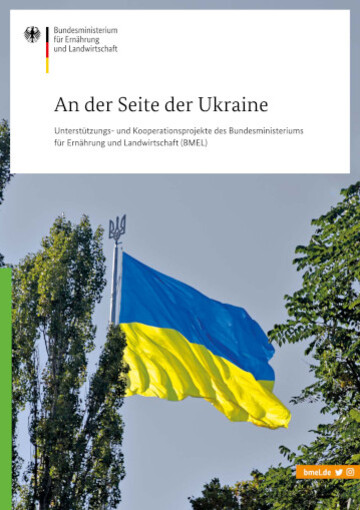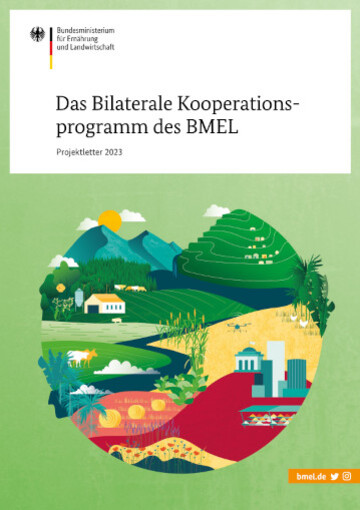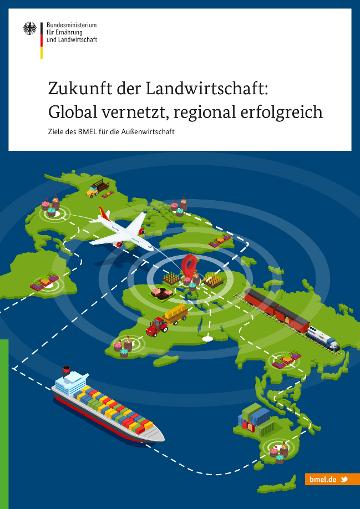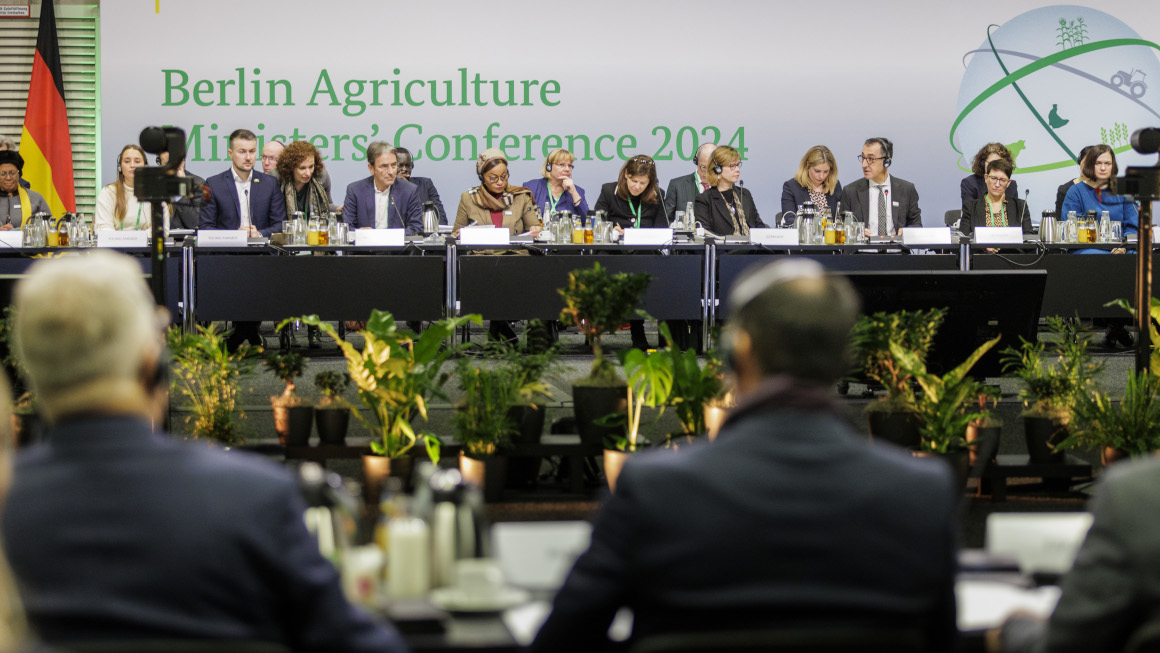The BMEL’s commitment to Africa: ensuring food security and promoting growth
The Federal Ministry of Food and Agriculture (BMEL) has made the cooperation with Africa a focus of its international engagement. It is in our interest to support the economic develop-ment of our neighbouring continent with its rapidly growing population and to shape our common future based on strengthened partnership.
We have refined the commitment to Africa in a comprehensive outreach process involving our partners from Africa, international institutions, and stakeholders from science, civil society and business. The BMEL is aiming to breathe life into the Federal Government’s Africa Policy Guidelines and the decisions of the EU-AU Agriculture Ministers by working closely with other ministries and the European Union and, through coherent cooperation between all rele-vant players, to help achieve the Sustainable Development Goals of the 2030 Agenda.
Key sector with great potential
Agriculture is the most important sector of the economy in numerous African states and has great potential for development. It ensures the food supply and creates both jobs and income opportunities. Dr. Akinwumi Adesina, president of the African Development Bank, said dur-ing the outreach process: “Agriculture is critical to inclusive growth and wealth creation in Africa, and for job creation, especially for millions of Africa´s youth and women.” The BMEL therefore aims to support its African partners in developing a site-adapted, sustainable and economically viable agricultural sector in Africa.
And this has never been more crucial. Because, as Agnes Kalibata, Special Envoy for the 2021 Food Systems Summit and President of the Alliance for a Green Revolution in Africa (AGRA), said in the outreach process: “The COVID-19 experience [has] also highlighted that agriculture is the main safety net for households and communities. It is crucial to seize the political moment (…), agriculture must be elevated to drive sustainable development, and economic and social transformation.”
Supporting reform-oriented states
The BMEL is currently actively involved in 28 African countries, including reform partner countries where the Federal Government is implementing the G20 Compact with Africa initiative. These states are particularly keen on reform and receive support in order to improve their framework for private sector commitment, with the goal of creating more jobs. Our technical cooperation is particularly close with Ethiopia, Côte d’Ivoire, Kenya, Morocco, Zambia, and South Africa.
Ensuring adequate and balanced nutrition
A key objective of our cooperation with Africa is ensuring adequate and balanced nutrition by improving the productivity, quality and sustainability of the agri-food sector while promoting food safety, animal and plant health as the bedrock for Africa’s participation in international trade. Likewise, the aim is to unlock the potential of sustainable forest development and management, to preserve natural resources and to increase the resilience of the African agricultural sector.
Available instruments:
- Bilateral Trust Fund
- Research cooperation in the field of global food security
- Bilateral cooperation programme
- Projects on international sustainable forest management
Spotlight on research and innovation
Research and innovation play a key role for sustainably increasing productivity and production. International networking of agricultural and nutritional experts is crucial to achieve this. The high degree of professional expertise in the institutions within the ministry's remit is therefore in demand among agricultural practitioners in Africa. “The African agricultural needs site adapted African solutions informed by peer to peer exchanges of ideas and innovations amongst fellow Africans and other stakeholders including Germany,” said Elizabeth Nsimadala, President of the Pan-African Farmers’ Organization. The BMEL wants to continue to contribute in this role in the future
"Africa is endowed with abundant opportunities for production of diverse, organic and micronutrient-dense food crops, as well as rangeland livestock species."
Josefa Sacko, African Union Commissioner for Rural Economy and Agriculture
Africa requires strong private sector stakeholders that are ready to invest in the agricultural sector and establish modern and sustainable production methods in order to transform Africa’s agriculture. German agri-food companies have considerable expertise, for example in the field of agricultural machinery, and can assist African stakeholders in the transfer of know-how and technology. The BMEL has therefore long been committed to involving the private sector in its demonstration and training projects.
German businesses are to be encouraged to establish networks. The BMEL’s foreign trade fair programme is also geared to allow small and medium-sized agricultural engineering enterprises to join forces and present their products, for instance in Morocco, Zambia and Ethiopia.


Specific examples for the commitment in Africa
Expert agricultural dialogues
Expert agricultural dialogues offer targeted advice on issues associated with agricultural policy such as inter-farm alliances, sustainable management of the valuable cedar forests in Morocco, the seed sector in Zambia, or land use rights in South Africa.
Sustainable cocoa production
In Côte d´Ivoire, roughly 30,000 cocoa producing family farmers are being trained in sustainable cocoa cultivation and in diversifying their products. This helps support them and their families in the long run in securing their jobs and income.
Further training on sustainable production methods
Since 2011, the Ethiopian-German Agricultural Training Centre has taught 7,000 farmers how to use sustainable production methods. They receive recognised training certificates and are multipliers for the modernisation of the agricultural sector.
Sustainable forestry
In Zambia, the BMEL promotes agroforestry for the production of timber and non-wood forestry products. The project aims to increase the income of the rural population and reduce deforestation through sustainable production.
Research for innovative cultivation and processing methods
The BMEL supports European and African scientists who work together to find solutions and innovative cultivation and processing methods in order to improve the food situation and value-creation opportunities. The Scale-N project in Tanzania and Mozambique is one example. The aim is to analyse dietary habits and cultivation methods and to examine the potential of a diversified agricultural sector. The “I love fish” project in Malawi aims to improve efficiency and sustainability in the rearing of a high-quality farmed fish species that is native to and popular in Malawi.
Cooperation with public institutions
German public institutions maintain partnerships with their African colleagues, for instance in the fields of food safety and plant protection, and thereby support capacity-building. Partnerships have existed for years between the German Federal Office of Consumer Protection and Food Safety (BVL) and the Moroccan Food Safety Authority or the German Federal Office of Agriculture and Food (BLE) and its Moroccan partner authority Foodex.















